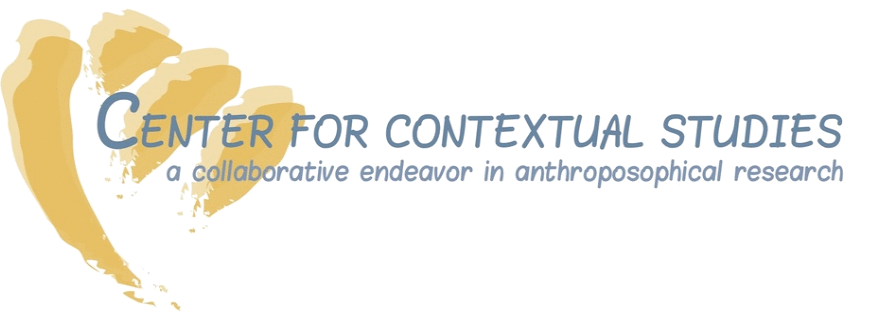The art of enacting a soul/spiritual pedagogical relationship rests on an understanding of being human that is not unduly limited by modern materialism. The human being as a whole is present in the world in what Steiner describes as three different ways. Each is the expression of a quality of relatedness. These three ways of being in the world – thinking, feeling and willing – weave through the 14 early morning lectures revealing different aspects of themselves as Steiner looks at them from different perspectives.
If we approach these lectures as a path of schooling leading to a new way of being with our students, we find that it makes sense to follow Steiner’s lead, to walk the path the way he laid it out. At each turning, he widens the notion of being human and at the same time lets the concept of humanness become increasingly dynamic.
We get a first glimmer of this in his initial lecture. Materialism, like any other worldview, limits our ability to see. It gives us a certain perspective, while at the same time blinding us to other possible ways of seeing. In modern culture, the materialistic perspective has achieved an ideological hegemony. Other perspectives, other ways of seeing are met with suspicion. Our own experiences of qualities of relatedness that go beyond materialistic explanations are called into doubt. We lose our sense of connection with the non-tangible, both in the world and in ourselves. This loss comes to expression as the urge to hold on to and protect one’s own sense of self, a way of being in the world that Steiner calls egoism.
That this way of being in the world has a devastating impact in the long term is readily apparent. How do we shift our perspective? Here Steiner offers a surprising suggestion. Instead of being so caught up with the question of where we are going, we should turn around and consider the question of where we have come from. How does it happen that we come into earthly existence? Where were we before? What is the impetus for leaving one state of existence in order to enter into another?
And in this context, the question of the intangible arises anew. Education becomes a challenge wider and deeper than passing on cultural conventions and schooling children in the skills they need to meet cultural expectations. Education is “a continuation of what higher beings have done” for and with this child in the time before birth. Our work as teachers is done in conjunction with them. We are never alone.
Jon McAlice
